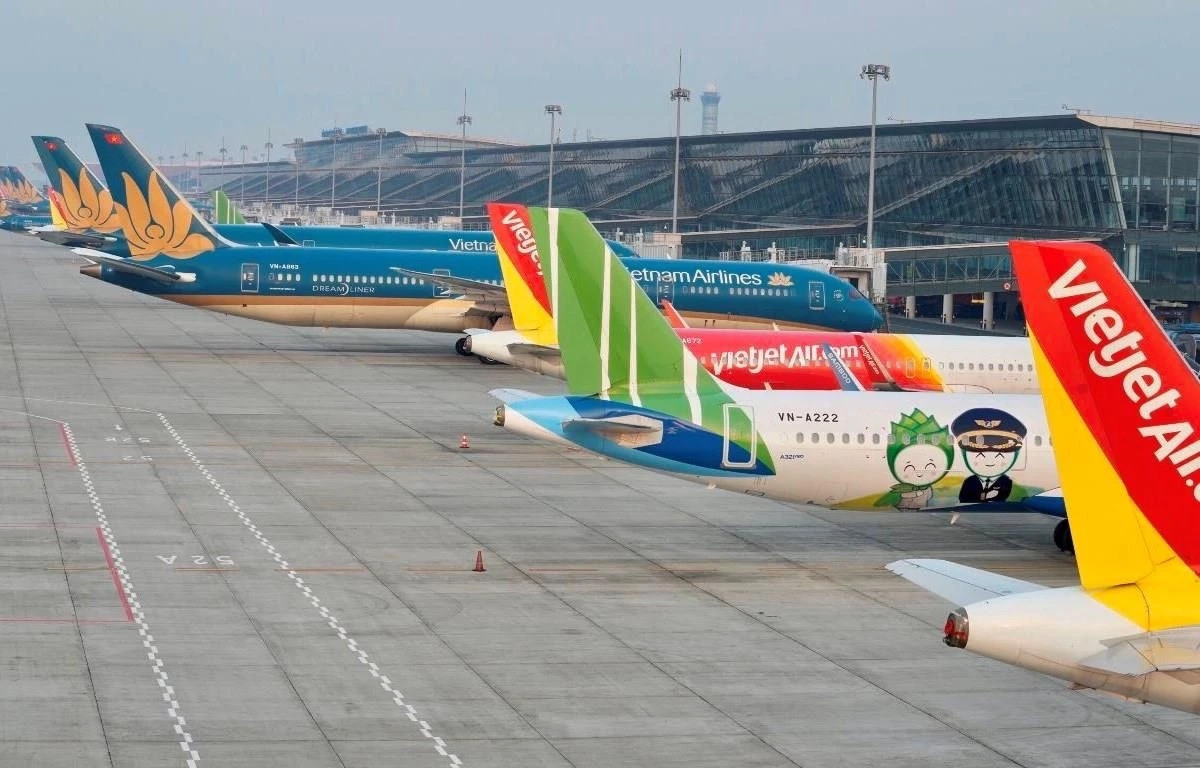
Vietnam’s airfare 'has never been too high'
This summer’s peak travel season has seen airfares surge, particularly for flights to tourist destinations such as Nha Trang, Phu Quoc, Quy Nhon, and Da Nang. This situation has persisted for 3–4 years, even as airlines are showing signs of business recovery.
Speaking at an online forum hosted by the Aviation Magazine, Nam stated, “I’ve never believed airfare in Vietnam is too high. In fact, it’s not high enough if we factor in operating costs and market stress borne by airlines.”
He explained that rising airfares are largely due to soaring aviation fuel costs, which at times have doubled compared to pre-pandemic levels, directly impacting operational expenses.
In addition, the post-pandemic recovery has been hampered by broken supply chains, severe labor and service shortages, and delays in restoring full functionality, further driving up costs.
Nam pointed out that the issue is not just increased travel demand - international passenger numbers rose 13% and domestic travelers 7% in the first half of 2025 - but also supply constraints.
One major issue is aircraft shortage. He cited a real-world scenario: during Europe’s summer tourism peak, aircraft demand is exceptionally high. Many international partners approached Bamboo Airways with lucrative offers to lease their aircraft.
“If we had sent planes to Europe for the summer, profits would be significantly higher than flying domestically in Vietnam. But we declined. As a Vietnamese airline, we chose to serve our local market, despite the intense cost and profit pressure,” Nam said.
He added that aviation is a low-margin industry, with profit margins averaging just 2%. Even large private carriers only reach 6-7%, which is lower than bank deposit interest rates.
“Looking at airfare alone, people might assume airlines are profiting heavily. But that’s simply not the case,” Nam emphasized.
He admitted that many airlines are still “burning cash” just to maintain operations. Bamboo Airways is also making every effort to stay afloat, and he called for policy improvements, especially to reduce operating costs.
Another long-standing issue, often raised but unresolved, is the domestic airfare ceiling.
Nam pointed out that Vietnam is the only country in the region still enforcing a price cap on domestic airfares. Meanwhile, investors and businesses seek autonomy in operations and are burdened by outdated, non-market regulations.
“If we keep the price ceiling, the aviation industry in Vietnam will continue to be a money-burning game. The more planes you fly, the more money you burn,” Nam warned.
Barriers for new private airlines
Commenting on the impact of Resolution 68, which aims to boost private sector growth in aviation and revise the Civil Aviation Law, Dr. Nguyen Si Dung, former Deputy Chairman of the National Assembly Office, advocated for a shift from a “licensing management” model to a “post-licensing oversight” approach. He urged removal of rigid conditions like high charter capital, fixed aircraft counts, and tight foreign ownership limits.
He argued that businesses are “dead on arrival” under the current restrictive licensing process, which stifles innovation and initiative. These unnecessary barriers, he said, should be scrapped to encourage healthy competition.
Additionally, obtaining an investment certificate remains a major hurdle for private carriers seeking to enter the market.
Nam explained that airlines established after 2016, such as Vietravel Airlines and Bamboo Airways, must now obtain both a business license and an investment certificate, unlike earlier procedures requiring only one. He called this two-step process unreasonable.
Foreign ownership rules are another obstacle. Currently capped at under 35%, foreign investors lack veto power. Dr. Dung suggested loosening these rules or adopting more flexible limits.
Nam concurred, saying that for Vietnam to modernize and integrate more deeply, it must offer more open policies for foreign investors - both in terms of capital ownership and management rights. He acknowledged that efforts to attract foreign investment in aviation over the past 30 years have largely failed.
In reality, only two Vietnamese airlines have received foreign capital: Japan’s All Nippon Airways (nearly 10% in Vietnam Airlines) and Australia’s Qantas Group (30% in Pacific Airlines). Both investors have since divested, effectively leaving Vietnam’s aviation sector without foreign ownership.
“They put money in but had no decision-making power, no veto rights,” Nam said.
Previously, Decree 76 (2007) allowed foreign investors to own up to 49% of a domestic airline.
Ngoc Ha